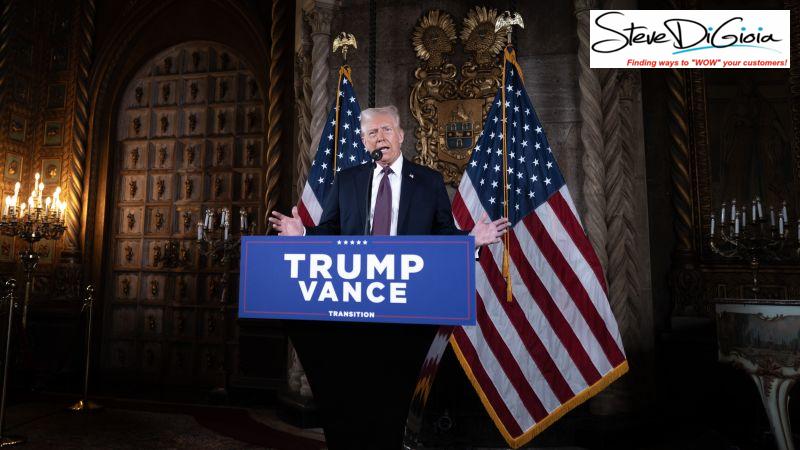In a recent wave of comments, former President Donald Trump has sparked quite a stir, especially regarding his suggestions about Canada potentially becoming the 51st state. This idea has been met with sharp criticism from Canadian leaders and raises questions about U.S.-Canada relations. Many politicians in Canada are no longer taking these remarks lightly, as they reflect a deeper strategy of prioritizing American interests on a continental level.
Trump’s Imperialist Designs on Canada
Trump’s comments about Canada can be seen as part of a broader vision that has repeatedly emerged in American history. Throughout this time, there has been speculation about the idea of annexation, with many American leaders mistakenly believing that Canadians would warmly embrace the notion of joining the United States. As recently as this month, Trump remarked that many Canadians want to become part of the U.S., claiming their excitement about the possibility of being the 51st state. This kind of talk, however, doesn’t sit well with many Canadians.
Canadian Leaders Push Back
Canadian Finance Minister Dominic LeBlanc didn’t shy away from voicing his discontent. He stated openly that Trump’s comments are no longer funny and represent a tactic to confuse and create chaos in Canadian-U.S. relations. Prime Minister Justin Trudeau firmly rejected Trump’s statements, asserting that “there isn’t a snowball’s chance in hell” of Canada becoming part of the United States. This strong response highlights the seriousness with which Canada treats such remarks and the implications they could have on bilateral relations.
Economic Concerns at the Forefront
Trump’s rhetoric has included mentions of using “economic force” rather than military might to influence Canada. He has inaccurately portrayed the U.S.-Canada trade situation as a disadvantage for the U.S., creating an impression that Canada might be benefiting disproportionately at America’s expense. This is an important concern because Canada plays a significant role in supplying natural resources, with the U.S. relying heavily on Canadian oil—importing around 60% of its crude oil from the country. The reliance on Canadian exports makes Trump’s aggressive comments about tariffs and trade particularly worrisome for Canadian leaders.
Past and Present: Annexation Dreams
Historically, the desire to annex Canada has echoed through the ages, where leaders like Thomas Jefferson once thought capturing Canada would be an easy feat. Yet, reality often paints a different picture. For decades, any movements advocating for annexation have seen minimal support from the Canadian public, and recent opinion polls reflect a clear preference for other U.S. political figures over Trump.
The Bigger Picture: Fear of Alienation
Trump’s aggressive pursuit of national interests resonates with a doctrine often viewed as a modern interpretation of the Monroe Doctrine, which sought to curb outside influence in the Western Hemisphere. Some experts worry that such a hardline stance could alienate longstanding allies and inadvertently weaken America’s stance globally. The idea of threatening Canada economically—whether through tariffs or other means—might just push Canada closer to other international partnerships rather than strengthening U.S.-Canada ties.
Table: U.S.-Canada Economic Relations
| Economic Aspect | Details |
|---|---|
| Oil Imports | U.S. imports approximately 60% of its crude from Canada |
| Daily Exports | Alberta alone supplies about 4.3 million barrels per day |
| Tariff Concerns | Proposed 25% tariffs on Canadian goods could disrupt trade |
| Critical Minerals | Canada provides 34 essential minerals to the U.S. |
While Trump’s comments may seem bold, they are embedded in a long history of political miscalculations regarding Canada. As Canada stands firm, the future of U.S.-Canada relations continues to hang in the balance, emphasizing the importance of dialogue and mutual respect between two neighboring countries.
























